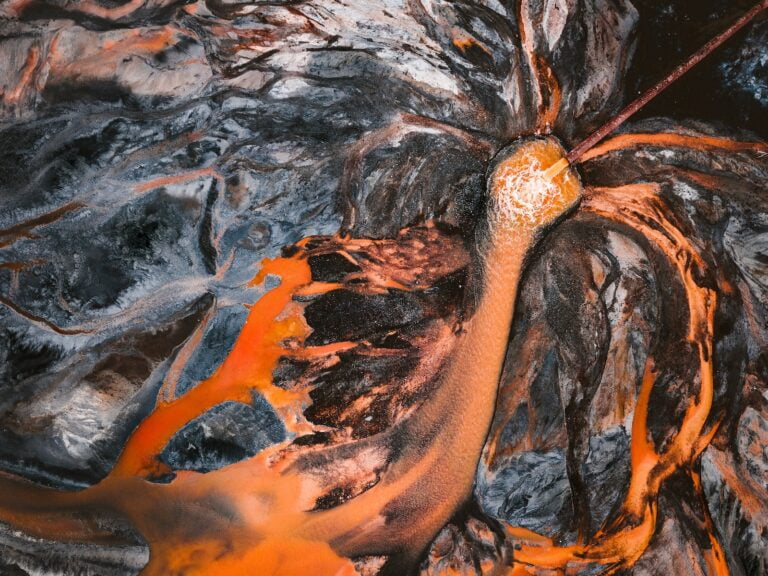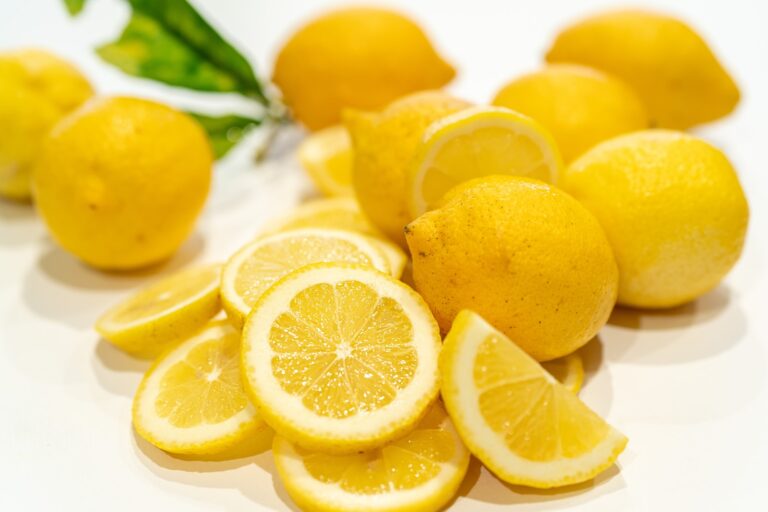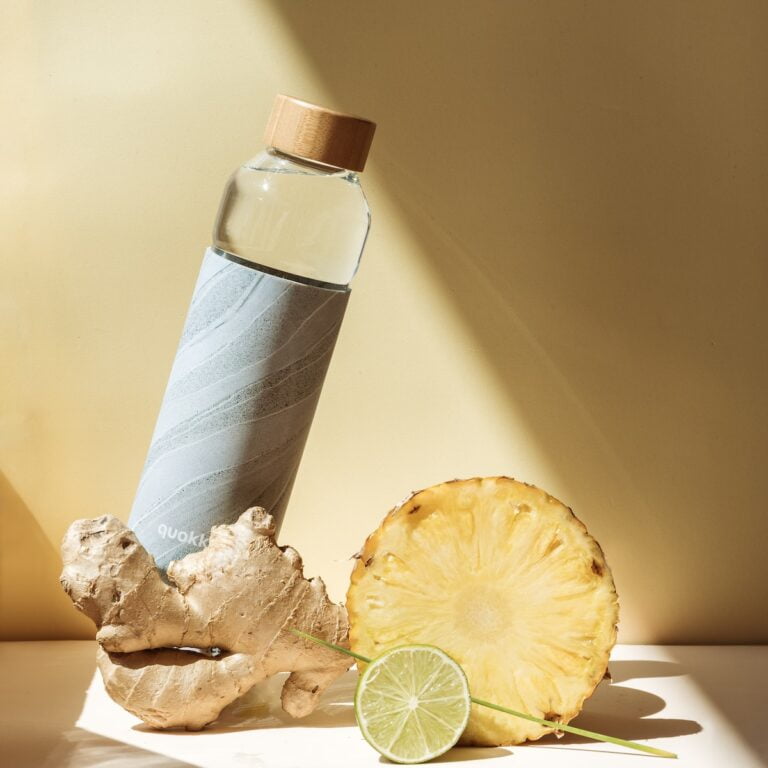Why Does Liver Require Detoxification?
The liver is a unique internal organ with distinct properties. Aside from being the only organ capable of regeneration, it also holds the distinction of being the largest and heaviest organ in the human body.
The liver carries out numerous vital functions, one of which is detoxification. It filters and eliminates foreign compounds that enter the body, including toxins. While the liver is a natural detoxifier, it still requires periodic detoxification. In this article, you will learn about the primary functions of the liver and the reasons for liver detoxification.
Key Functions of the Liver
The liver performs a multitude of functions, all of which hold immense importance for overall health and longevity. Alongside detoxification, the liver undertakes around 500 distinct functions. Here is a list of the main functions of the liver:
Detoxification:
The liver expels external toxins and chemical substances that are ingested through food, water, respiration, and products like Bisphenol-A, Polycyclic Aromatic Hydrocarbons, Pesticides, and Herbicides, as well as alcohol, nicotine, and drugs.
The liver synthesizes a substantial portion of proteins essential for our bodies and a crucial secretion known as bile. Bile aids in breaking down fats and ensuring proper digestion. Bile also plays a vital role in the absorption of vitamins like A, D, E, and K.
The liver also produces proteins that regulate blood clotting. The hormone erythropoietin, manufactured by the liver, contributes to blood cell formation.
Metabolism:
The liver metabolizes nutrients to generate energy when needed. It enables proper fat and carbohydrate metabolism by producing bile. Through breaking down fats, proteins, and carbohydrates, bile allows the liver to digest and process them, while maintaining a normal blood sugar level.
Storage:
The liver plays a crucial role in storing vitamins and minerals in the body. It stores iron, vitamins B12, A, D, E, and K in significant quantities, retaining them as reserves in the body for years.
Immune Function:
The liver supports the immune system in combating infections. As the liver contains a substantial number of immune cells, known as Kupffer cells, it neutralizes infectious substances that enter the liver through the intestines.
What Damages the Liver?
The liver is continually subjected to stress due to what we consume, breathe, or drink in our daily lives. Environmental toxins, accumulated infectious agents within the body, along with harmful dietary habits, alcohol consumption, and smoking are detrimental to liver health.
Environmental toxins and chemical substances entering the body can cause severe liver damage over extended periods. As the liver must process any toxins entering the body, harmful substances can accumulate during the neutralization and deactivation process. These toxic chemicals include benzene, pesticides, disinfectants, and heavy metals.
 Infectious agents are the primary cause of inflammation, which diminishes liver function. The most common inflammatory liver condition caused by viruses or autoimmune reactions is hepatitis.
Infectious agents are the primary cause of inflammation, which diminishes liver function. The most common inflammatory liver condition caused by viruses or autoimmune reactions is hepatitis.
Consuming excessive amounts of alcohol over an extended period can lead to alcoholic liver disease or even cirrhosis. Poor dietary habits, consumption of processed foods, and energy drinks can result in obesity, which can lead to fatty liver.
Stress triggered by workloads, relationships, or daily responsibilities also harms the liver and disrupts bile production.
Liver Detoxification: Why and How?
As mentioned, the liver is a complex organ with multiple functions. When the liver becomes overloaded, it cannot function properly, leading to poor well-being and illnesses. An unhealthy lifestyle can negatively affect liver functions, increasing toxic exposure while simultaneously reducing immunity and glutathione levels.
Detoxifying your liver is crucial to avoid various liver health issues. Liver detoxification can enhance its function, resulting in:
A stronger immune system Protection against liver diseases Reduced inflammation Increased energy levels Improved digestion Enhanced bowel movement Clearer skin, and more. You can safeguard your liver through a lifestyle that supports liver detoxification. Incorporating appropriate foods into your diet and employing a range of natural treatment methods can help your liver stay healthy and function properly.
Foods for Liver Cleansing
Liver-cleansing foods include vegetables like spinach, cucumber, broccoli, cabbage, turnip, beetroot, carrot, and lettuce, fruits such as lemon, orange, and berries, herbs like ginger, garlic, turmeric, milk thistle, watercress, horseradish, peppermint, parsley, coriander, and mint.
 Foods harmful to the liver include processed and refined products, which should be excluded from your diet.
Foods harmful to the liver include processed and refined products, which should be excluded from your diet.
Natural Treatment Methods Aid in Liver Detoxification
Natural treatment methods such as intravenous liver cleansing, coffee enemas, salt rooms, and infrared saunas are particularly useful for detoxifying and strengthening the liver. Liver support protocols, including vitamins A, B, C, E, B2, B3, B6, B12, iron, calcium, copper, zinc, magnesium, selenium, and alpha-lipoic acid, are highly effective in liver detoxification. They help alleviate any deficiency in vitamins or minerals. Since they are administered intravenously, they ensure swift absorption of vitamins into the body.
A lifestyle supporting liver detoxification, including a diet with liver-cleansing foods and natural therapy, aids your body in producing more glutathione, accelerating toxin elimination from cells, and improving bile flow. Thus, you can detoxify and maintain your liver—the primary detoxification organ—reduce the risk of liver function-related health issues, and simultaneously enhance your well-being.
Herbs and Foods for Liver Cleansing
The liver is a vital organ in the body that aids digestion, stores nutrients, and cleanses our system by eliminating harmful substances. The liver also acts as a crucial defender of our immune system, identifying harmful bacteria, viruses, and toxins that enter our body, capturing and expelling them. A healthy liver is essential for overall health and well-being.
Excessive alcohol consumption, consumption of unhealthy, processed, and stale foods, carbonated drinks, irregular meal timings, poor sleep, elevated stress levels, and even certain medications can damage the liver. This can lead to frequent illnesses, a diminished quality of life, and even death. With the increasing burden of liver diseases worldwide, we must make lifestyle changes and seek herbal support to keep our liver strong and safe.
 Many herbs are beneficial for maintaining liver health, as well as for preventing and treating liver diseases. Let’s take a look at the most beneficial herbs for liver health.
Many herbs are beneficial for maintaining liver health, as well as for preventing and treating liver diseases. Let’s take a look at the most beneficial herbs for liver health.
Most Beneficial Herbs for Liver Health
Milk Thistle
Milk thistle consistently tops the list of herbs for liver health. It has long been used in herbal medicine for liver cleansing and protection and has been the subject of much research. It is believed to contain potent antioxidants and plant compounds, especially silymarin, which aids in liver and overall body detoxification. It also provides protective effects by calming inflammation and slowing the progression of liver disease. To consume milk thistle, you can either take it in the form of an extract or use its seeds to prepare tea.
Turmeric
Turmeric has gained significant popularity due to its anti-inflammatory properties. It helps stimulate bile production, supporting both your liver and digestion. Researchers believe that curcumin, turmeric’s active ingredient, can contribute to liver health.
Green Tea
You might also think of green tea as an herb. It possesses numerous health benefits and is rich in powerful antioxidants. Studies have shown that green tea can be beneficial for people with non-alcoholic fatty liver disease. It is capable of reducing specific markers of damage associated with this condition and decreasing liver fat content.
Garlic
Garlic contains compounds that naturally increase glutathione levels. Glutathione is a vital antioxidant for detoxifying the body. Raw garlic is particularly beneficial for the liver.
Licorice Root
Licorice root supplements can benefit individuals with non-alcoholic fatty liver disease and protect against alcohol-related liver damage. It’s important to note that some people may be more sensitive to licorice root supplements and they may lead to adverse side effects.
Ginger
Ginger root is known for alleviating stomach discomfort and nausea. It is also beneficial for your liver. Studies have indicated that it contains plant compounds that help protect the liver (and body) from inflammation and cell damage.
Burdock Root
Burdock root is another widely used herb in herbal medicine for detoxification and liver cleansing. It is considered a blood and liver cleanser and aids in lymphatic drainage by stimulating lymph flow. This can aid in complete detoxification of the body and alleviate skin issues related to poor liver function or toxins in the body. Burdock root also possesses cooling effects.
Ginseng
Ginseng is an adaptogenic plant often used to boost energy and recover from stress. However, it also boasts powerful anti-inflammatory properties that can help protect the liver from damage and promote liver cell regeneration.
Yellow Dock
Yellow dock is another bitter root that stimulates bile production and encourages your liver (and the rest of your body) to expel toxins. It also aids digestion, particularly when taken as a digestive bitter about 20-30 minutes before meals.
Precautionary Measures
As always, when using herbs, remember that each of them has specific effects, so be sure to research before trying a particular herb. All the herbs on this list are “safe,” but they can interact with medications, etc. Additionally, liver damage and disease can be very serious, so if necessary, consult a doctor.
Lastly, keep in mind that your diet and lifestyle play a significant role in how healthy your liver is. Simply taking herbs won’t fix your liver, and they’ll have the most significant effect when combined with other health-promoting practices.
Summary
Herbs are an excellent support for maintaining optimal liver function. They aid in cleansing, stimulate bile production, and provide a protective effect that helps shield the liver from damage.
Frequently asked questions about liver detoxification
What are natural ways to cleanse or detoxify the liver?
Natural ways to detoxify the liver include maintaining a balanced diet rich in fruits, vegetables, and whole grains, staying hydrated, engaging in regular physical exercise, limiting alcohol and tobacco consumption, and getting adequate sleep.
Can dietary changes help in liver detoxification?
Yes, dietary changes can help with liver detoxification. Consuming a variety of nutrient-rich foods, especially those high in antioxidants and fiber, can assist your liver in detoxification.
How does drinking water aid in liver detoxification?
Drinking water contributes to liver detoxification by helping the body flush out toxins. It also assists the kidneys in removing waste from the blood, reducing the burden on the liver.
Are there any specific foods that promote liver health?
Foods that promote liver health include fruits and vegetables, whole grains, nuts, seeds, lean protein, and foods rich in omega-3 fatty acids like fish. Cruciferous vegetables, such as broccoli and Brussels sprouts, are particularly beneficial.
Can regular physical exercise help in liver detoxification?
Regular physical exercise can aid in liver detoxification. It helps maintain a healthy weight, which can prevent non-alcoholic fatty liver disease. Exercise also boosts overall metabolism, facilitating faster toxin elimination.
How does alcohol consumption affect liver health?
Alcohol consumption can damage liver cells, leading to inflammation and scarring. Ultimately, this can progress to late-stage liver cirrhosis. It’s essential to limit alcohol consumption for liver health.
What role does sleep play in liver detoxification?
Quality sleep is crucial for liver health. During sleep, the body works on cell and tissue repair, including the liver. This aids the liver in performing its detoxification functions better.
Are there any herbal supplements that can aid in liver detoxification?
Some herbal supplements like milk thistle, turmeric, and dandelion root are believed to aid in liver detoxification. However, always consult a doctor before starting any supplement regimen.
How can I determine if my liver needs detoxification?
Signs that your liver may need detoxification include fatigue, yellowing of the skin and eyes (jaundice), abdominal pain, nausea, and changes in appetite. However, these symptoms can also indicate more severe liver issues, so it’s important to consult a doctor.
Can liver detox help with weight loss?
Liver detoxification can indirectly assist with weight loss. By improving liver function, your body can more efficiently metabolize and eliminate fats.